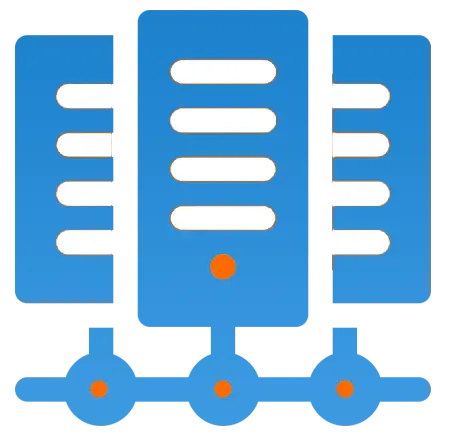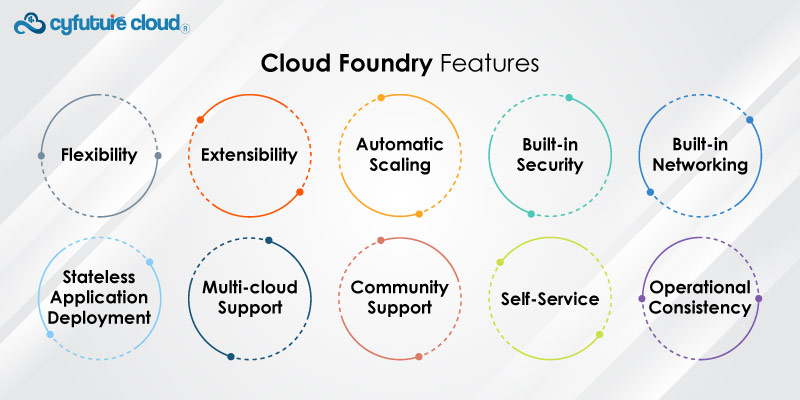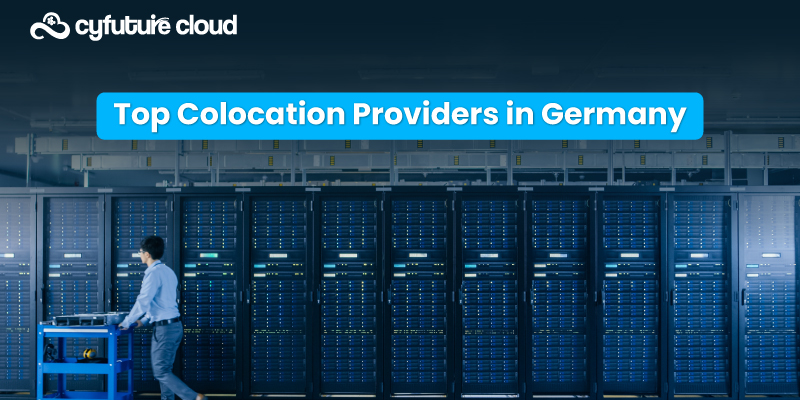Get 69% Off on Cloud Hosting : Claim Your Offer Now!
- Products
-
Compute
Compute
- Predefined TemplatesChoose from a library of predefined templates to deploy virtual machines!
- Custom TemplatesUse Cyfuture Cloud custom templates to create new VMs in a cloud computing environment
- Spot Machines/ Machines on Flex ModelAffordable compute instances suitable for batch jobs and fault-tolerant workloads.
- Shielded ComputingProtect enterprise workloads from threats like remote attacks, privilege escalation, and malicious insiders with Shielded Computing
- GPU CloudGet access to graphics processing units (GPUs) through a Cyfuture cloud infrastructure
- vAppsHost applications and services, or create a test or development environment with Cyfuture Cloud vApps, powered by VMware
- Serverless ComputingNo need to worry about provisioning or managing servers, switch to Serverless Computing with Cyfuture Cloud
- HPCHigh-Performance Computing
- BaremetalBare metal refers to a type of cloud computing service that provides access to dedicated physical servers, rather than virtualized servers.
-
Storage
Storage
- Standard StorageGet access to low-latency access to data and a high level of reliability with Cyfuture Cloud standard storage service
- Nearline StorageStore data at a lower cost without compromising on the level of availability with Nearline
- Coldline StorageStore infrequently used data at low cost with Cyfuture Cloud coldline storage
- Archival StorageStore data in a long-term, durable manner with Cyfuture Cloud archival storage service
-
Database
Database
- MS SQLStore and manage a wide range of applications with Cyfuture Cloud MS SQL
- MariaDBStore and manage data with the cloud with enhanced speed and reliability
- MongoDBNow, store and manage large amounts of data in the cloud with Cyfuture Cloud MongoDB
- Redis CacheStore and retrieve large amounts of data quickly with Cyfuture Cloud Redis Cache
-
Automation
Automation
-
Containers
Containers
- KubernetesNow deploy and manage your applications more efficiently and effectively with the Cyfuture Cloud Kubernetes service
- MicroservicesDesign a cloud application that is multilingual, easily scalable, easy to maintain and deploy, highly available, and minimizes failures using Cyfuture Cloud microservices
-
Operations
Operations
- Real-time Monitoring & Logging ServicesMonitor & track the performance of your applications with real-time monitoring & logging services offered by Cyfuture Cloud
- Infra-maintenance & OptimizationEnsure that your organization is functioning properly with Cyfuture Cloud
- Application Performance ServiceOptimize the performance of your applications over cloud with us
- Database Performance ServiceOptimize the performance of databases over the cloud with us
- Security Managed ServiceProtect your systems and data from security threats with us!
- Back-up As a ServiceStore and manage backups of data in the cloud with Cyfuture Cloud Backup as a Service
- Data Back-up & RestoreStore and manage backups of your data in the cloud with us
- Remote Back-upStore and manage backups in the cloud with remote backup service with Cyfuture Cloud
- Disaster RecoveryStore copies of your data and applications in the cloud and use them to recover in the event of a disaster with the disaster recovery service offered by us
-
Networking
Networking
- Load BalancerEnsure that applications deployed across cloud environments are available, secure, and responsive with an easy, modern approach to load balancing
- Virtual Data CenterNo need to build and maintain a physical data center. It’s time for the virtual data center
- Private LinkPrivate Link is a service offered by Cyfuture Cloud that enables businesses to securely connect their on-premises network to Cyfuture Cloud's network over a private network connection
- Private CircuitGain a high level of security and privacy with private circuits
- VPN GatewaySecurely connect your on-premises network to our network over the internet with VPN Gateway
- CDNGet high availability and performance by distributing the service spatially relative to end users with CDN
-
Media
-
Analytics
Analytics
-
Security
Security
-
Network Firewall
- DNATTranslate destination IP address when connecting from public IP address to a private IP address with DNAT
- SNATWith SNAT, allow traffic from a private network to go to the internet
- WAFProtect your applications from any malicious activity with Cyfuture Cloud WAF service
- DDoSSave your organization from DoSS attacks with Cyfuture Cloud
- IPS/ IDSMonitor and prevent your cloud-based network & infrastructure with IPS/ IDS service by Cyfuture Cloud
- Anti-Virus & Anti-MalwareProtect your cloud-based network & infrastructure with antivirus and antimalware services by Cyfuture Cloud
- Threat EmulationTest the effectiveness of cloud security system with Cyfuture Cloud threat emulation service
- SIEM & SOARMonitor and respond to security threats with SIEM & SOAR services offered by Cyfuture Cloud
- Multi-Factor AuthenticationNow provide an additional layer of security to prevent unauthorized users from accessing your cloud account, even when the password has been stolen!
- SSLSecure data transmission over web browsers with SSL service offered by Cyfuture Cloud
- Threat Detection/ Zero DayThreat detection and zero-day protection are security features that are offered by Cyfuture Cloud as a part of its security offerings
- Vulnerability AssesmentIdentify and analyze vulnerabilities and weaknesses with the Vulnerability Assessment service offered by Cyfuture Cloud
- Penetration TestingIdentify and analyze vulnerabilities and weaknesses with the Penetration Testing service offered by Cyfuture Cloud
- Cloud Key ManagementSecure storage, management, and use of cryptographic keys within a cloud environment with Cloud Key Management
- Cloud Security Posture Management serviceWith Cyfuture Cloud, you get continuous cloud security improvements and adaptations to reduce the chances of successful attacks
- Managed HSMProtect sensitive data and meet regulatory requirements for secure data storage and processing.
- Zero TrustEnsure complete security of network connections and devices over the cloud with Zero Trust Service
- IdentityManage and control access to their network resources and applications for your business with Identity service by Cyfuture Cloud
-
-
Compute
- Solutions
-
Solutions
Solutions
-
 Cloud
Hosting
Cloud
Hosting
-
 VPS
Hosting
VPS
Hosting
-
GPU Cloud
-
 Dedicated
Server
Dedicated
Server
-
 Server
Colocation
Server
Colocation
-
 Backup as a Service
Backup as a Service
-
 CDN
Network
CDN
Network
-
 Window
Cloud Hosting
Window
Cloud Hosting
-
 Linux
Cloud Hosting
Linux
Cloud Hosting
-
Managed Cloud Service
-
Storage as a Service
-
 VMware
Public Cloud
VMware
Public Cloud
-
 Multi-Cloud
Hosting
Multi-Cloud
Hosting
-
 Cloud
Server Hosting
Cloud
Server Hosting
-
 Bare
Metal Server
Bare
Metal Server
-
 Virtual
Machine
Virtual
Machine
-
 Magento
Hosting
Magento
Hosting
-
Remote Backup
-
 DevOps
DevOps
-
 Kubernetes
Kubernetes
-
 Cloud
Storage
Cloud
Storage
-
NVMe Hosting
-
 DR
as s Service
DR
as s Service
-
-
Solutions
- Marketplace
- Pricing
- Resources
- Resources
-
By Product
Use Cases
-
By Industry
- Company
-
Company
Company
-
Company
Cloud Foundry: A Beginner’s Guide to Deploying Applications
Table of Contents
Cloud platforms provide businesses with the ability to quickly and easily deploy network applications and services. These apps can be made available to the world in a matter of minutes or days.
When an app becomes popular or needs to be able to handle more traffic, the cloud can help make it more robust. This includes being able to add customizations, and more – without having to worry about the underlying infrastructure.
To ensure that your cloud apps are deployed quickly, with ease and high reliability, Cloud Foundry is a popular and industry-standard PaaS (platform-as-a-Service).
Cloud Foundry, designed for developers, is an open-source cloud platform that simplifies the process of deploying, managing, and scaling applications. It offers a user-friendly interface, abstracting the complexities of underlying infrastructure and enabling seamless application development. By supporting multiple programming languages and frameworks, Cloud Foundry empowers beginners to swiftly build, test, and launch applications across diverse cloud environments, promoting agility and rapid development cycles without extensive infrastructure knowledge.
But what it is so? Why do all types of businesses whether they are small or large need Cloud Foundry in the first place?
This blog will provide you with an overview of Cloud Foundry and how it can positively impact your business. You’ll also learn about the reasons why so many users love it.
What is Cloud Foundry?
Cloud Foundry is an assemblage of Application Programme Interfaces (APIs) and implementation of core services. It offers a cloud-based Platform as a Service (PaaS) on top of a virtual infrastructure on which developers can build, deploy, run and scale applications.
Cloud Foundry was initially developed as a Java PaaS for Amazon EC2 by Chris Richardson. In 2009, it was acquired by SpringSource and then acquired by VMWare. It was then handed over to Pivotal.
This platform supports the Microservices architectural style.
Cloud Foundry is a polyglot platform that is licensed under Apache 2.0 and allows you to deploy a myriad of applications written in various computer languages — Java, Python, Node.js, Ruby, Go, .NET languages, and many more.
Simply use the best language for the task at hand with the freedom of knowing that Cloud Foundry supports it.
It offers services that automate the steps needed to deploy and scale cloud-based applications, supporting a DevOps model where a solution’s development and operations go hand in hand.
How Cloud Foundry is different from other PaaS offerings?
|
Feature |
Cloud Foundry |
Other PaaS Offerings |
|
Flexibility |
High |
Varies |
|
Extensibility |
High |
Varies |
|
Programming languages and frameworks supported |
Multiple |
Varies |
|
Cloud providers supported |
Multiple |
Varies |
|
Services offered |
Wide range |
Varies |
|
Community support |
Large and active |
Varies |
|
Open-source |
Yes |
Varies |
|
Application deployment model |
Stateless |
Varies |
|
Application scaling |
Automatic |
Varies |
|
Application security |
Built-in |
Varies |
|
Application networking |
Built-in |
Varies |
Architectural Structure of Cloud Foundry
The architectural structure of Cloud Foundry can be divided into two main parts: the Control Plane and the Data Plane.
Control Plane
The Control Plane is the management layer of Cloud Foundry and includes the Cloud Controller, UAA, and BOSH. These components work together to provide a centralized management system for deploying and managing applications and services.
- Cloud Controller: The Cloud Controller is the central component of the Cloud Foundry architecture. It is responsible for managing the lifecycle of applications and services, including deployment, scaling, and deletion.
- UAA (User Account and Authentication): UAA is an identity management system that handles user authentication and authorization. It provides a central location for managing user accounts and permissions for accessing applications and services.
- BOSH: BOSH is a tool for deploying and managing distributed systems. It is used to deploy and manage the Cloud Foundry infrastructure, including the Cloud Controller, Diego, Router, UAA, and Loggregator.
Data Plane
The Data Plane is the execution layer of Cloud Foundry and includes the Diego, Router, and Loggregator. These components work together to provide a runtime environment for applications and services.
- Diego: Diego is the container orchestration system that manages the scheduling and execution of applications. It works in conjunction with the Cloud Controller to ensure that applications are running in the optimal environment.
- Router: The Router is responsible for routing incoming traffic to the appropriate applications and services. It uses a routing table that maps incoming traffic to specific URLs and routes it to the correct application instance.
- Loggregator: Loggregator is a logging and metrics system that provides real-time visibility into the performance and health of applications. It aggregates log data from all applications and services and makes it available to developers and operators.
What are the features of Cloud Foundry?

This open-source PaaS provides several features to help developers deploy and manage their applications.
Some of the key features of Cloud Foundry include
- Flexibility: Cloud Foundry allows developers to use their preferred programming languages, frameworks, and cloud providers. This means that developers can choose the tools and technologies that best suit their needs.
- Extensibility: Cloud Foundry provides a wide range of services that can be easily integrated into applications, such as databases, message queues, and more. This allows developers to add new functionality to their applications without having to build it from scratch.
- Automatic scaling: This platform automatically scales applications to meet demand. This means that applications can handle escalated traffic without manual intervention.
- Built-in security: Cloud Foundry provides built-in security features to help keep applications and data safe. This includes features such as role-based access control, user authentication, and encryption.
- Built-in networking: Cloud Foundry provides built-in networking features to help route traffic to applications and services. This includes features such as load balancing, service discovery, and service routing.
- Stateless Application Deployment: Cloud Foundry supports a stateless application deployment model, which means that the application doesn’t store any state on the local filesystem. This makes it easy to deploy and manage applications.
- Multi-cloud support: Cloud Foundry supports multiple cloud providers, such as AWS, Azure, GCP, etc. This allows developers to deploy their applications to the cloud provider of their choice.
- Community support: It have an active and large community of developers and users who contribute to its development and provide support. This means that developers can benefit from the experience and expertise of others.
- Self-service: Cloud Foundry allows developers to provision and manage the resources their applications need with minimal intervention from IT operations. This speeds up the development process and allows developers to focus on building their applications.
- Operational consistency: To deploy and manage applications across different cloud environments, cloud foundry provides a consistent way. This makes it easy to move applications between different cloud providers or on-premises environments.
To Sum it Up!

Cloud Foundry stands out as a transformative force in cloud platforms. It offers businesses unparalleled agility, scalability, and reliability. With the ability to deploy network applications and services within minutes or days, the cloud becomes an essential asset for organizations seeking rapid deployment and robustness.
Cloud Foundry promotes agility and rapid development cycles, ushering businesses into an era of innovation without the burden of extensive infrastructure knowledge. With its robust features, multi-cloud support, and active community, Cloud Foundry emerges as a cornerstone solution for businesses seeking operational consistency and unparalleled efficiency in the dynamic landscape of cloud computing.
Recent Post

Stay Ahead of the Curve.
Join the Cloud Movement, today!
© Cyfuture, All rights reserved.
Send this to a friend

 Pricing
Calculator
Pricing
Calculator
 Power
Power
 Utilities
Utilities VMware
Private Cloud
VMware
Private Cloud VMware
on AWS
VMware
on AWS VMware
on Azure
VMware
on Azure Service
Level Agreement
Service
Level Agreement 


















